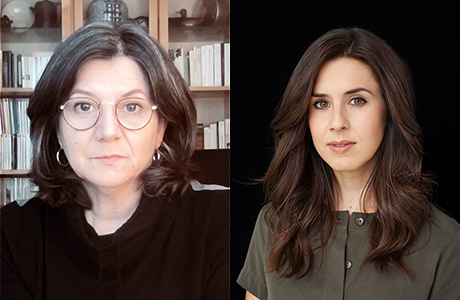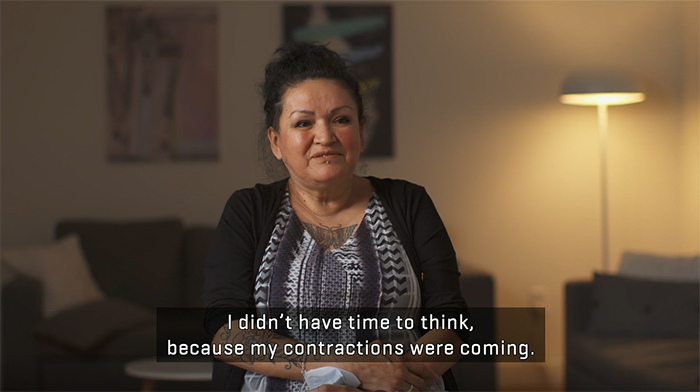2022 Honourable Mention

In their 40-minute documentary investigation for Radio-Canada’s Enquête, Sylvie Fournier and Judith Plamondon demonstrated for the first time that forced sterilization, or sterilization without informed consent, was still occurring in Quebec.
Consent to sterilization given during labour does not meet the Canadian Medical Protective Association criteria for this procedure, and is banned in many jurisdictions. But as the journalists reported, women were still being coerced to consent in Quebec, and in parts of Western Canada.
They identified and collected the personal stories of a dozen Indigenous and racialized women in Quebec who were subjected to the practice from the 1980s to as recently as 2018.

As the women’s experiences showed, the practice reflects the conscious and unconscious biases of physicians who offer women under the stress of active labour a chance to “take advantage” of an unplanned C-section in order to have their tubes tied. Often, the women feel intimidated, submit to the physician’s authority, and consent to a procedure they did not request.
With strength and courage, survivors of this practice speak out, revealing some of the negative stereotypes with which they were viewed: they had too many children, they were unable to take care of their children, they were vulnerable because of their social or economic status, they were too old to have children.
The practice is rooted in medical colonialism which sought to halt the empowerment of Indigenous peoples across Canada. Researchers like Karen Stote have revealed the existence of explicit guidelines in health establishments frequented by Indigenous populations, requiring the sterilization of Inuit and First Nations women, and even men.
The program provoked outrage from the public and an immediate reaction at the National Assembly of Quebec. Premier François Legault qualified the practice as “totally unacceptable” and “barbaric.” He ordered his Deputy Minister for Health and Social Services to work with the province’s College of physicians to ensure that health professionals were given the order to no longer propose tubal ligation to women during childbirth.
The story also helped raise awareness among the women affected by this profound injustice. Many experienced their forced sterilization as something to be ashamed of, a taboo. They were unaware that other women had also been coerced into giving up their fertility.
As a result of their report, two Atikamekw women from Manawan have filed a request with the Superior Court to initiate a class action lawsuit against the Lanaudière regional health authority and two of its former doctors on behalf of all Atikamekw women who have undergone such procedures without providing their free and informed consent. Their report also made waves in Montreal’s Black community. A prenatal coach, Ariane Métellus, is currently setting up a non-profit organization that will offer support to BIPOC women in Quebec’s health care system.
Sylvie Fournier is an award-winning investigative reporter for the Canadian Broadcasting Corporation’s flagship current affairs program Enquête. She started in Ottawa as a news and current affairs reporter for French radio and television, before moving to the national network in Montreal and eventually joining Enquête when the program was launched. Since then, her driving force has been tackling social injustices through in-depth investigations on environmental, health and racial issues. She has also been recognized for her work on the controversial use of less-lethal weapons by the police, for revealing the regulatory failures that led to the Lac-Mégantic accident, and for uncovering the shady practices of foreign law firms who pocketed millions of dollars from the victims’ compensation fund after Canada’s worst rail disaster. She was twice awarded the Judith-Jasmin Journalism Award, and has also received a Gemini Award, a Justicia Award, and the Beth Mclaughlin Environmental Journalism Award.
Judith Plamondon is an investigative producer/journalist at Enquête, Radio-Canada. She began her career hunting down news for a Montreal daily. She turned to the documentary genre out of a desire to investigate subjects in more depth and tell stories through images. Over the past ten years, she has directed and produced a dozen documentaries and reports for cinema and television, for Canadian broadcasters (Radio-Canada, RDI) and international partners (France 2, Narratively). She is interested in social subjects ranging from the intimate to the political and touching on issues related to identity, minority rights and feminism. Among her notable projects, she directed a testimonial-driven documentary on the Montreal Massacre, Polytechnique: What Remains of December 6 (2019), 30 years on from Marc Lépine’s shooting spree.

